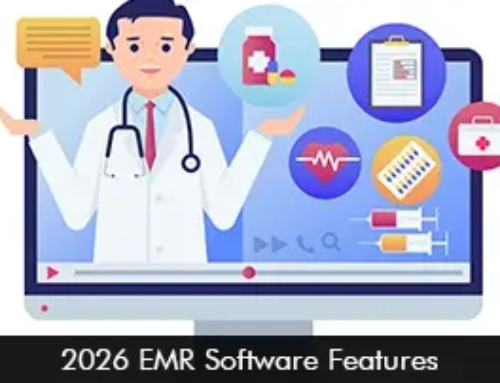Electronic Medical Records (EMR) Software systems have been rapidly implemented all across healthcare organizations in the US. The EHR software has many robust features that help to streamline daily clinical, administrative, and financial workflows. The software solutions have been utilized to improve public health and health outcome levels as well. As a healthcare provider and an EMR software user, it is important to know about the social benefits of electronic health records technology.
Shift to EMR Software Records from Paper Files
Today, we are seeing the healthcare landscape shifting towards digitization and automation by deploying EHR Software systems. EHR development has been on the rise as they are seen as an efficient system for storing and sharing patient records. Earlier, paper records resulted in inefficiencies as it could take time to find the right patient files, and also had storage costs associated with it. Patient Health Information (PHI) can be easily shared via interoperability options to improve patient care at large. The majority of Electronic Health Records (EHR) Software vendors offer HIPAA compliance to secure digital patient records. The digital ecosystem has benefited healthcare by providing accurate patient data and supporting care coordination.
The Social Benefits of EHR Systems
EMR Software provides various societal benefits that lead to improved healthcare delivery and outcomes. These advantages are especially essential in current healthcare systems. Here are some of the most important social benefits of EHR software systems:
Public Health Benefits
Electronic Medical Records Software can combine and analyze patient data, allowing public health patterns and outbreaks to be identified more quickly. This aids in illness diagnosis and control and can lead to better public health interventions. Through the valuable data government and health agencies can take quicker action when there is a public health emergency.
Aids Medical Health Research
The robust technology of EMR software offers a pool of health information that can be used for population health studies and medical research. The development of more efficient medicines and improvements in medical understanding may result from these data hence improving healthcare delivery.
Environmental Advantages
By minimizing paper waste and the carbon footprint associated with producing and storing paper, the use of electronic health records systems lessens the demand for paper-based records, a factor in environmental sustainability. EMR software helps to ensure the long-term viability of healthcare systems. As more healthcare facilities use health IT solutions, the industry’s reliance on resource-intensive paper-based processes decreases, resulting in long-term environmental benefits.








